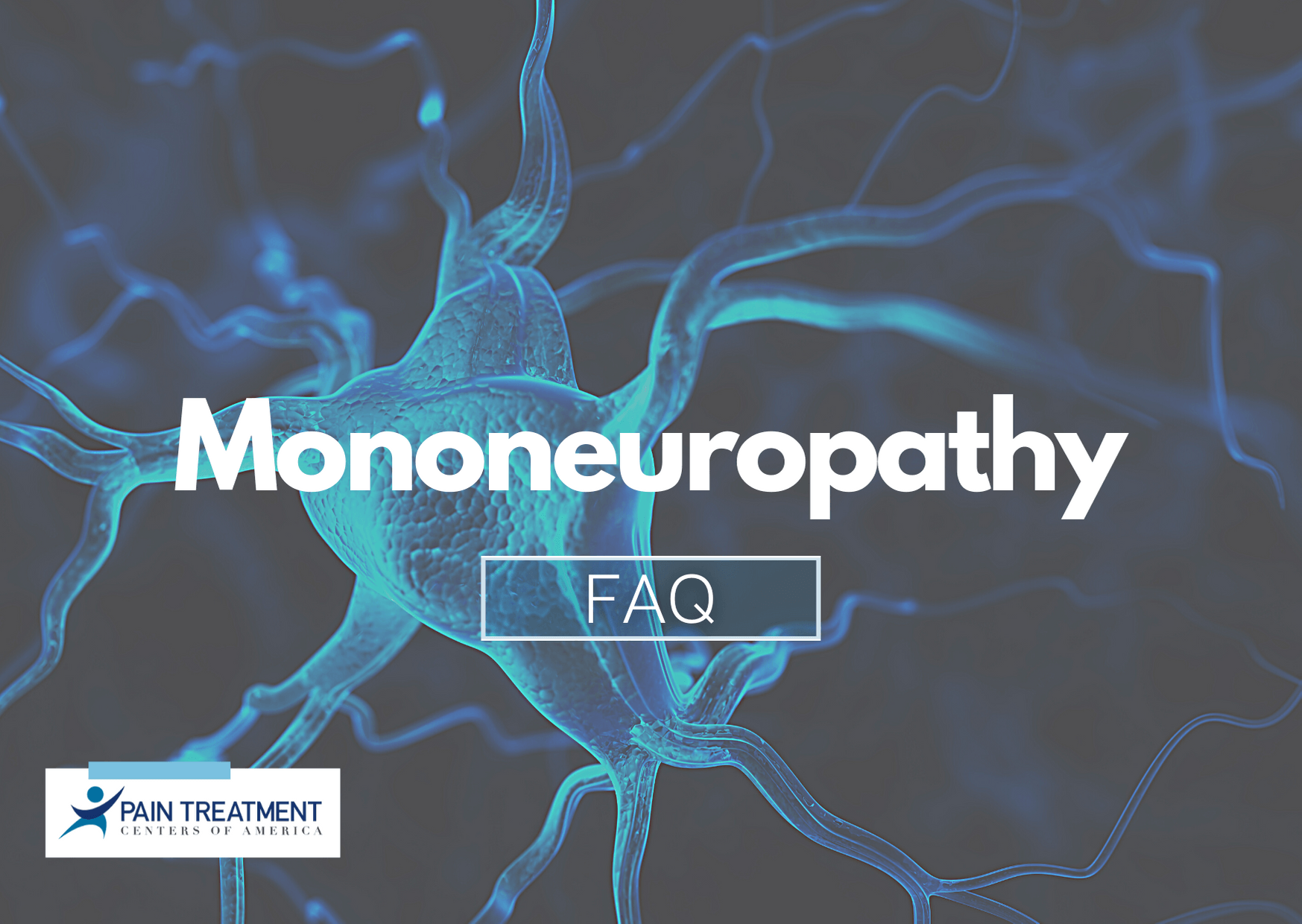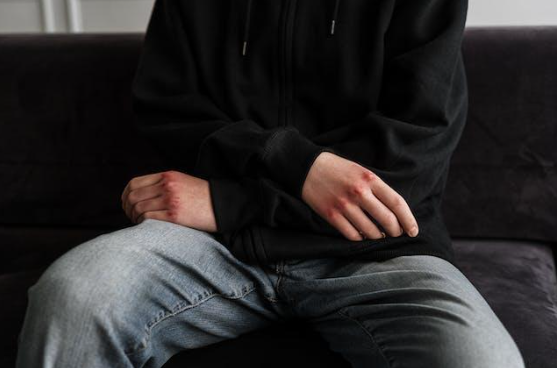Call for more information: (844) 215-0731
New Patient Department:
(501) 254-0967
Referrals (Fax): (888) 630-8885
Medical Records (Fax): (501) 476-5707

Frequently Asked Questions About Mononeuropathy
Mononeuropathy affects many people, and you probably have a lot of questions if you were recently diagnosed. Check out this article to learn more about mononeuropathy, how it may affect you, and how you may be able to prevent it.
What Is Mononeuropathy?
If you have been told that you have mononeuropathy, it means that you have a single nerve that is not functioning the way that it should. While it is more common for entire groups of nerves to be damaged, mononeuropathy can still be a frustrating experience. As an example, carpal tunnel syndrome is a frequently diagnosed form of mononeuropathy.
Does Mononeuropathy Affect How Nerves Work?
Yes, there are three ways that damage can harm nerve function. Mononeuropathy can cause a nerve to overreact, become unresponsive, or react inappropriately.
What Does an Over-Reactive Nerve Feel Like?
When a nerve is over-reactive, it will send signals too easily. This can lead to situations like feeling pain when nothing is wrong or experiencing uncontrollable twitching.
What Are the Symptoms of an Unresponsive Nerve?
If your damaged nerve is unresponsive, it is unable to pass communication from one part of your body to the next. This means that you may not be able to voluntarily move part of your body or feel things, like touching a hot pan.
What Are the Symptoms of a Nerve Responding Inappropriately?
Sometimes, damage can cause nerves to send signals that are inappropriate for a situation. For instance, feeling a hot sensation when you touch ice can be caused by a nerve that is sending the wrong signals.
What Can Cause Mononeuropathy?
There are a variety of things that can cause nerve damage. The most common of these is physical damage from an injury. Vascular problems, autoimmune disorders, hormonal or vitamin imbalances, kidney and liver disease, cancer, infections, and certain medications can also cause temporary or permanent nerve damage. In very rare cases, nerve damage can be caused by genetic mutations or hereditary diseases.
Who Can Diagnose Mononeuropathy?
Because it has so many possible symptoms, nerve damage can be hard to diagnose. If you think you may have mononeuropathy, you should start by reaching out to your primary care doctor. Your physician will consider your medical history and, if necessary, make recommendations for you to see the appropriate specialists.
What Kind of Tests Are Involved in Diagnosing Mononeuropathy?
To get an accurate diagnosis, you will need to undergo a variety of exams. You may be asked to undergo physical tests to determine if nerve damage has affected things like your range of motion. Neurological exams may also be necessary to find out how well your nerves can communicate with your brain. The following methods are common ways to determine the cause and severity of nerve damage:
● Blood Testing – This procedure will tell your doctors if you have a vitamin or hormonal imbalance. It is also a fast way for them to check how well your kidneys, liver, and metabolic functions are working.
● Electromyography – This test is conducted by a physician who will insert very thin needles into your muscles to measure how much electricity passes through them during different tasks. This will alert them to irregular activity that may signal nerve damage.
● Biopsy – Whether they are removing a very small piece of skin or a section of a specific nerve, biopsies help doctors figure out exactly which nerve is damaged and how severe the issue is. Skin biopsies are fairly common, but doctors only perform nerve biopsies when they have no other choice because they can cause further damage.
● Magnetic Resonance Imaging – Commonly referred to as an MRI, this type of test uses noninvasive methods to let doctors look at your nerves. Using an MRI, doctors can see the cause of things like pinched nerves, which can help them come up with an effective treatment plan.
Is It Possible to Prevent Mononeuropathy?
Some types of mononeuropathy can be avoided if you take the proper precautions. Following safety measures to prevent injury and avoiding unnecessary medical procedures are two ways that you can reduce your odds of experiencing nerve damage.
Can Mononeuropathy Be Treated?
You can relieve some types of mononeuropathy by making positive lifestyle changes. Eating a well-balanced diet, maintaining a healthy weight, quitting smoking, and exercising can all help improve nerve function. However, not all nerve damage is reversible. Fortunately, there are treatments, like the following, that can lessen the severity of mononeuropathy's symptoms.
● Physical Supports – Items like wrist braces and orthopedic insoles can help relieve the pressure on your nerves. Combined with physical therapy, these supports can reduce your pain levels and help support your nerves while they heal.
● Medications – Some medications, like steroids, are particularly useful in relieving the pain associated with nerve damage. Others, such as carefully injected anesthetics, can slow or block the functions of overactive nerves. You should only use prescription medication as directed to manage the symptoms of your mononeuropathy.
● Transcutaneous Electrical Nerve Stimulation – Usually referred to as TENS, this procedure uses electricity to gently stimulate specific nerves. Research has shown this method is effective at improving the symptoms related to certain types of nerve damage.
● Surgery – Sometimes pinched nerves need to be physically adjusted. A skilled surgeon can carefully move a nerve out of where it has been trapped so that it can begin to heal.
How Can the Pain Treatment Centers of America Help with Mononeuropathy?
At the Pain Treatment Centers of America, we are committed to helping our patients improve their quality of life. We offer a variety of services, such as steroid injections and physical therapy, that are designed to relieve the symptoms of mononeuropathy. We realize that no two cases of nerve damage are identical, and we work closely with all of our clients to provide them with the most effective course of treatment for their needs.




Call usReferrals (Fax)(888) 630-8885
Patient Support Hours
Monday - Thursday 8:00 - 5:00

All Rights Reserved | Pain Treatment Centers of America | Arkansas | Mississippi | Texas



